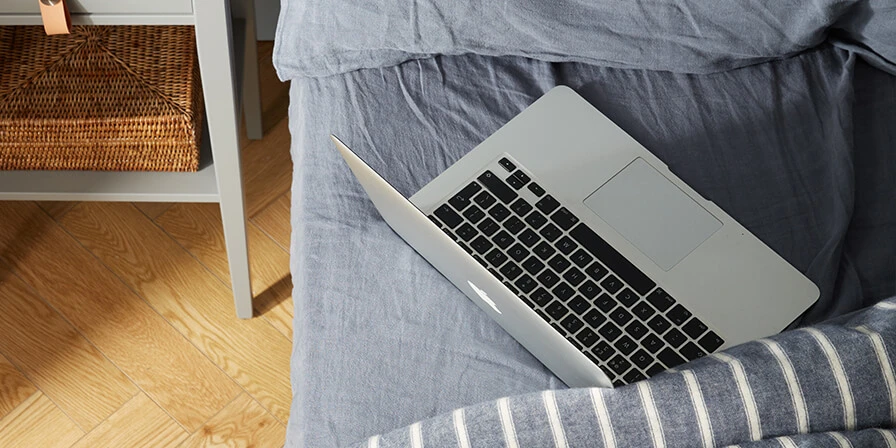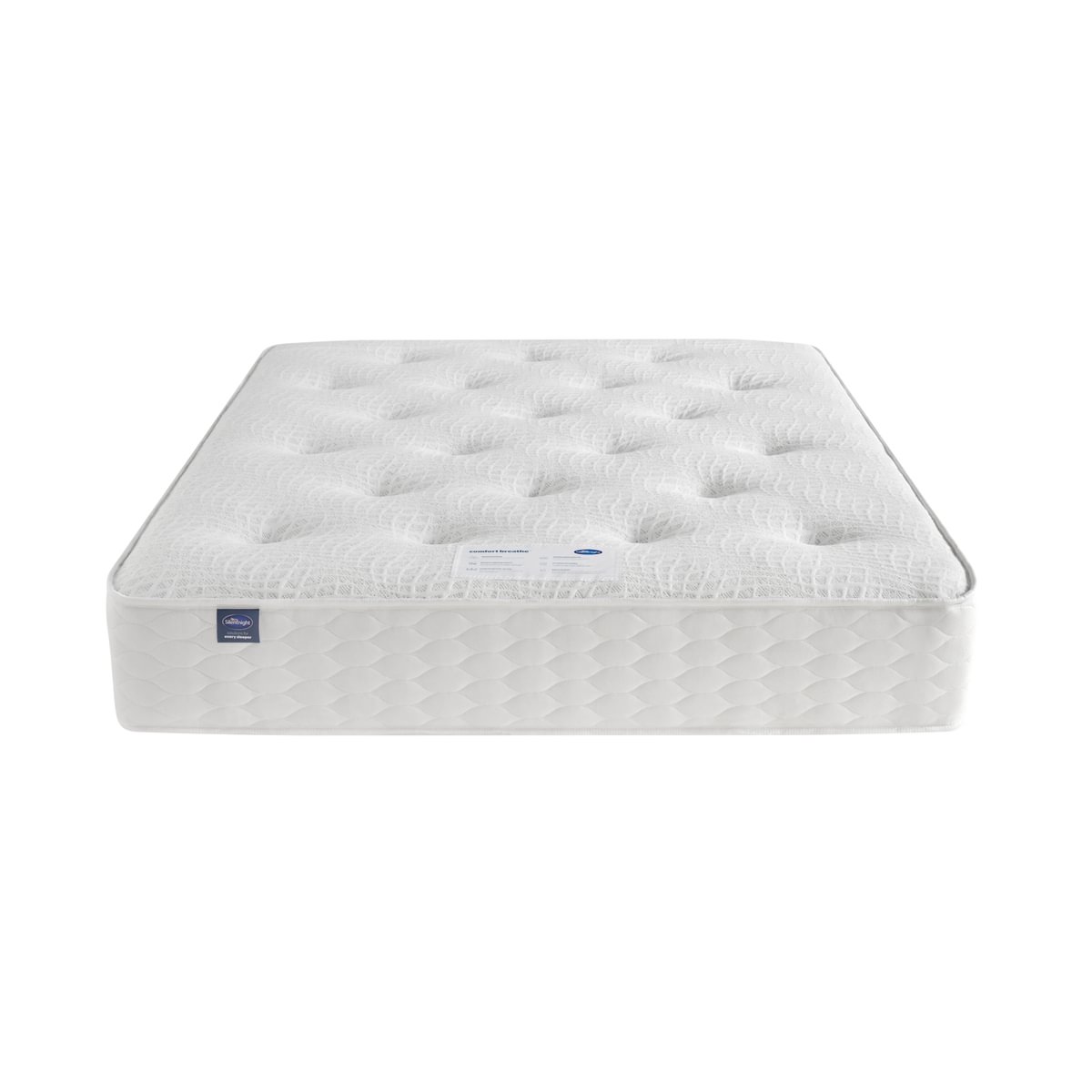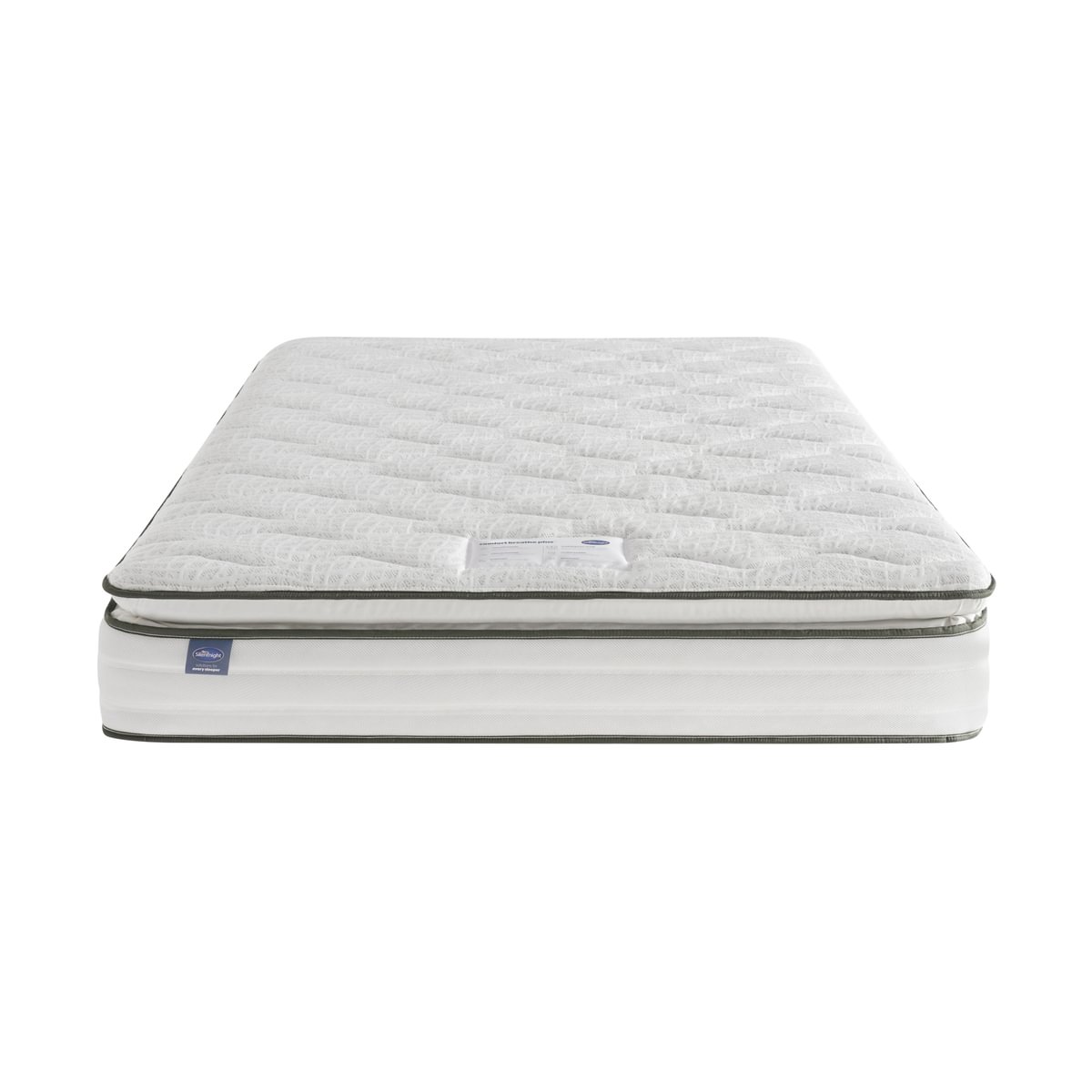is sleep the secret to exam success?

Quality sleep impacts how we perform, our mood and how healthy we are, mentally and physically.
Early on in our sleep, we spend more time in NREM (deep) sleep in which growth hormones are released, and less time in REM sleep.
Teenagers should aim for 8-10 hours of sleep each night.
Your bedroom should be as cool, dark and quiet as possible to help promote a better night’s sleep.
Consistent sleep can help improve your academic performance, so you should go to bed and wake up at the same time each day.
There’s no denying that going through exam season is stressful and pressure-enhancing, often meaning that sleep becomes the last thing on your mind. Skimping on sleep always feels like a good idea so you can cram in the revision, but this is actually the worst thing you can do. Why? Sleep is vital for feeling and performing at your very best, which makes a good night’s sleep more important than ever when it comes to study periods. Let's discuss how sleep can positively impact your grades and why it really is the secret to exam success.
sleep & brain function
Quality sleep accounts a lot for how we perform, our mood and how healthy we are, mentally and physically. During our sleep, our brain cycles through various stages depending on the duration and quality; from REM to deep sleep and back again. REM sleep refers to rapid eye movement, a stage of sleep that’s vital for good cognitive function. Early on in our sleep, we spend more time in NREM (deep) sleep in which growth hormones are released, and less time in REM sleep. As the night progresses, the time spent in deep sleep decreases, and we spend more time in the REM stage. And it’s widely thought that this stage consolidates certain types of memories, and by waking up too early, we can disrupt this process. By getting poor-quality sleep, you'll naturally get more deep sleep the following night as your mind and body tries to make up for the night before. Therefore, the less time it has to consolidate your memories (or your revision notes) that night.
how many hours of sleep is best for an exam?
As a general rule, teenagers should aim for 8-10 hours of sleep each night and really put the effort in to gain quality sleep for at least a week prior to their exam period. However, sometimes this can be easier said than done.
Below are risks to keep in mind when trying to focus on sleep to learn.
Caffeine Intake Can Keep You Awake
Understandably, students are under a lot of stress during exams so are more likely to up their caffeine intake, which can potentially disrupt their sleep and possibly lead to a cycle of caffeine reliance.
The Fear of Missing Out
While recent studies have shown the disruption from blue light to be minimal on your sleep, the fear of missing out (FOMO) on notifications and social media updates can cause the release of wake-promoting hormones.
how to sleep better when studying for exams
So, now it’s time to figure out how you achieve quality sleep for optimum brain function. Here are our experts’ top tips:
A regular sleep schedule - Consistent sleep can help improve your academic performance, so try to go to bed and wake up at the same time each day, even on weekends.
Avoid screen time just before bed - As mentioned above, phones, tablets and even TV can encourage wake-up hormones to be released. Find a routine of putting your devices away and out of mind before bedtime and instead, wind down with a book or listen to some soothing music.
The ideal sleep environment - Your bedroom should be as cool, dark and quiet as possible to help promote a better night’s sleep. You want to encourage your body to drop to its core temperature to maximise your chances of restful sleep. Need a helping hand? Our UltraGel™ range is specially designed to cool you down.
Sleep in total comfort - It’s a lot easier to fall asleep when you’re completely comfortable. If your mattress is too firm, invest in a memory foam mattress topper, or if you wake up with a drowsy head, consider replacing your pillows.
Daily exercise - Exercising every day goes a long way to improving your sleep quality. We recommend going for a brisk walk or jog soon after you wake up for an energy boost. A walk in the morning exposes the body to natural light which will help stop the production of melatonin, making you feel more awake, alert and ready for the day. Just make sure you don’t exercise too close to bedtime as this’ll raise your body temperature and stress hormones will be released, such as cortisol.
Lack of quality sleep can affect your brain function, negatively impacting your memory, mood and logical reasoning; impairing the skills that you require to perform well during exam time. That’s why having a good study schedule is the way to tackle your exams with flying colours; one that incorporates routine quality sleep, a comfortable environment and even exercise.
Enjoyed this read on sleep and exams? Discover our blog on 3 top tips for better sleep before exam results day.
faqs
does sleep affect exams?
Yes, if you don’t get enough quality sleep prior to your exams, your memory, cognitive function and overall mood can be impacted, therefore you might not perform as well when taking them.
is it better to sleep 1 hour or none before an exam?
It depends on whether this is the only sleep you’ll be getting beforehand, or if this is instead of a full night’s kip. Short naps (20 minutes) have been known to boost alertness and memory, but if this is the only sleep you’ve experienced, a full hour is recommended.
why can't I sleep when I have an exam?
Stress and anxiety about the exam can keep you awake. These feelings can then trigger your flight or fight response, leaving you feeling alert and making it harder to relax and unwind.



























